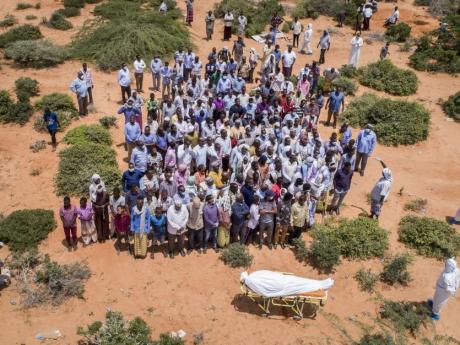Stigma surrounding coronavirus hinders response in Africa
KAMPALA, Uganda (AP) — After 23 days in quarantine in Uganda — far longer than required — Jimmy Spire Ssentongo walked free in part because of a cartoon he drew.
It showed a bound prisoner begging for liberation after multiple negative tests, while a health minister demanded to know where he was hiding the virus.
“The impression was that we were a dangerous group and that what was necessary was to protect the rest of society from us,” said Ssentongo, a cartoonist for Uganda’s Observer newspaper who was put in quarantine when he returned from Britain in March.
The fear he describes is indicative of the dangerous stigma that has sprung up around the coronavirus in Africa — fuelled, in part, by severe and sometimes arbitrary quarantine rules as well as insufficient information about the virus.
The way people were treated early in this pandemic is “just like the way, early on in the HIV epidemic, patients were being treated,” Salim Abdool Karim, an epidemiologist who chairs South Africa’s COVID-19 ministerial advisory committee, told a World Health Organization event last month. People with HIV were often shunned by their own families, and reports of health workers refusing to care for them were common in the 1990s.
Now, some people avoid testing for the coronavirus “because if they test, they’re ostracised,” Karim said.
Or simply locked away. Ssentongo, who was released from quarantine on the 24th day after testing negative three times, told The Associated Press that he and others were poorly treated at the facility, a hotel.
In neighbouring Kenya, people in quarantine reported similar poor treatment and discrimination.
At one facility, those inside said their money was rejected by the staff and the surrounding community when they tried to buy food, according to a Human Rights Watch report in May.
In the West African nation of Burkina Faso, a nurse’s assistant who found employment as a cleaner in a hospital said her uncle gave her an ultimatum: quit or leave home.
Health Minister Pierre Somse, of Central African Republic, said humanitarian workers have been targeted because the idea has spread that Westerners, who often do such work, brought the virus. He urged governments to “de-dramatise” the response to calm panicked communities.

